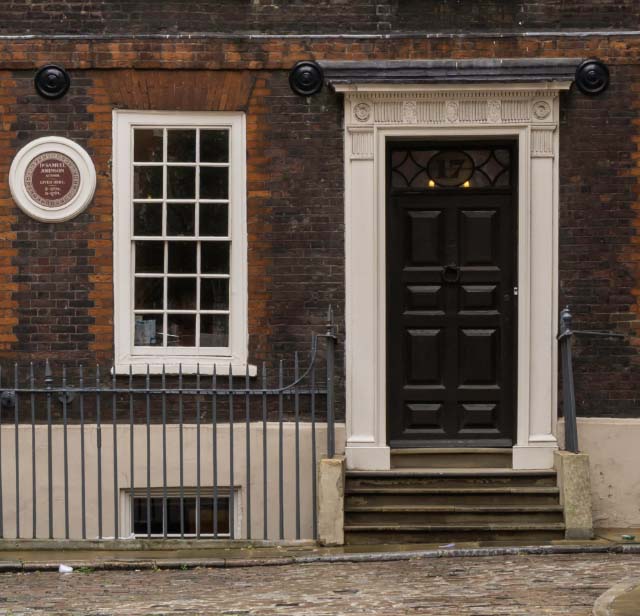Dr Johnson's House
It was in the garret of this early 18th-century house that Dr Samuel Johnson compiled his famous Dictionary: a nine-year labour of love that resulted in the first comprehensive lexicon of the English language.
The house has been restored to its condition during Johnson's 11-year occupancy (from 1748 to 1759) and retains many original features — including some heavy-duty crime prevention measures and an ingenious `cellarette' in the dining room. Arranged over several floors, the house has no shortage of stairs, but then to quote the friendly attendant, 'the chairs are for sitting on, not gawping at'.
A hand-held audio guide provides more detail and anecdotal information about Dr Johnson — and there's no shortage of that either, thanks to his biographer James Boswell. The audio guide (which comes in Mandarin and Japanese as well as English) is available free of charge for those not able to tackle the stairs.
The house contains some unexpected treasures. A brick from the Great Wall of China is a tangible reminder of Johnson's unrealised ambition to visit it, while the garret is home to a model toy workshop presented to the house by firefighters in World War II.
Books, paintings and memorabilia of Dr Johnson and his circle can be found throughout the house and there's an entertaining and informative video show as well as free information sheets (now available in 10 languages).
Changing displays and exhibitions keep things fresh for regulars while younger visitors can try on a selection of replica Georgian clothing. The courtyard outside the house contains a statue of Hodge, Johnson's much-loved cat who was, according to his master at least, "a very fine cat, a very fine cat indeed".
Johnson was renowned for his witty aphorisms, the most famous of which relates to the city in which he made his home, "When a man is tired of London, he is tired of life; for there is in London all that life can afford." Cards and collections of Johnson's sayings and bon mots are available in the small shop.
Incidentally, a glance in a facsimile of his Dictionary reveals that the great man defined a museum as 'a repository of learned curiosities' — a description that fits this characterful old house like a glove.

